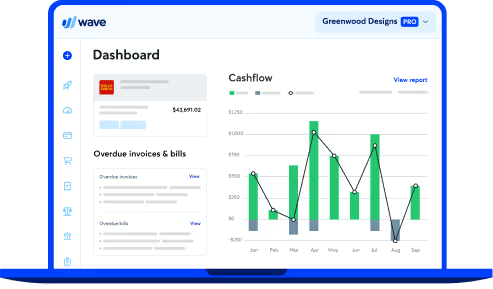
How to figure out if a business loan is right for you
In the United States, small businesses borrow around $600 billion each year. The average small business loan pays out $663,000 (as of 2017). There’s no doubt that business loans can be a powerful tool to help fund, launch, and grow a small business.
That said, business loans aren’t the right choice for every small business out there. Like anything else, they come with their own host of requirements, pros, cons, and challenges. That’s why it’s important to put some thought into whether a loan is the best option for your business before you start the application process.
In this article, we discuss the advantages and disadvantages of taking out a business loan, plus questions you should ask to decide if a loan is right for you. If you ultimately decide a business loan isn’t for you, there are some alternative funding options to help you fund your business.
Advantages of taking out a business loan
- You get an influx of cash to grow your business
- You (usually) don’t have to give up any equity
- There are multiple loan products and options to choose from
- Timely repayment boosts your business credit score
- Loan interest repayment is tax-deductible
In 2017, nearly 40% of business owners in the U.S. applied for a business loan of some kind, so it’s clear there are some key benefits and advantages to taking one out.
The most obvious benefit is that your business gets an influx of cash that you can use to launch, expand, or otherwise grow your operation. On that note, business loans also offer business owners access to a relatively large amount of capital, when compared with other funding options.
Another advantage is that, in exchange for that capital, bank loans typically don’t require owners to relinquish any equity in the business. That means you maintain complete decision-making control—a big perk for many entrepreneurs.
Most banks also offer a myriad of options and loan products, so they can work with you to figure out the best option for your business. Plus, many of those loan products offer much lower interest rates than other funding options (like credit cards or payday loans), especially if you have a good credit score.
Speaking of, when you take out a loan in the name of your business, the repayment is a good opportunity to build and improve your business credit score, which is separate from your personal score. Not to mention, as you repay the loan, any interest you pay can be deducted from your quarterly or annual business taxes.
Disadvantages of business loans
- The application process is often lengthy and cumbersome
- Qualification requirements are rigid
- Many bank loans require you to put up collateral
- You only get money—not strategic support
Like anything else with that many clear benefits, there are also some drawbacks to taking out a business loan, and they’re important factors in helping you decide if a loan is the best option for you.
For one, finding a small business loan option and applying for it from a traditional bank often involves a lengthy and cumbersome application process. That means you have to invest a lot of time and energy into applying and getting approved—time that could otherwise be spent working on the business. Not to mention, traditional lenders have some rigid qualifications for who they’re willing to lend to (most approval rates hover around 26% for large banks and 52% for smaller, local banks). That makes it harder for smaller and newer businesses to qualify.
One of those requirements may often include putting up substantial collateral (usually around 25% of the loan amount) that the bank can seize if your business defaults on the loan. This is when reliable accounting software would come in handy to ensure you don't end up defaulting on the loan.
The last main disadvantage of taking out a business loan is one that’s often overlooked: the lack of support. When you raise venture capital or angel investment, you often gain a business and strategic partner in addition to the financial investment. When you get a loan, you’re typically only getting the money.
Questions to ask to figure out if a business loan is right for you
Since there are several pros and cons to taking out a loan for your business, it can be hard to weigh them against each other and decide (for sure) if a business loan is right for your business, right now.
That said, there are a handful of questions you can ask yourself to get a better handle on that.
How much funding do I need?
Whenever you go out in search of funding for your business, it’s important to have a specific amount of money in mind. How much do you need? If that number is particularly low, you may not even need a traditional loan in order to raise it. If it’s a huge number, you may not be able to secure that much from a bank or traditional lender.
When do I need the money?
It’s also best to understand when you need that money. If your business can’t make it through the month without an influx of cash, then you don’t have time to apply for a bank loan (it typically takes 60-90 days to get approved, at minimum).
How will I use the money?
This is one of the first questions almost every lender will want an answer to. In addition to preparing you for the application process, taking time to consider how you’ll use the money can help point you in the direction of the best funding option.
For example, if you need the money to buy additional inventory, crowdfunding or pre-selling might be a better option than paying interest on a bank loan.
Do I meet common lender requirements to qualify?
Regardless of whether a bank loan might work for your business needs, qualification is a horse of an entirely different color. As we mentioned earlier, most traditional lenders have stringent requirements yourself and your business needs to meet in order to qualify for a loan.
While, depending on the lender, there may be some wiggle room, if you find your business misses the mark on multiple lender qualifiers, you aren’t likely to get approved. That means your time is probably better spent pursuing other funding options.
Will this funding better enable my business to repay the loan?
It’s easy to get caught up focusing on getting the money and using it to grow your business—but what about repayment? It’s important to look into the repayment terms and your anticipated monthly payment before choosing a lender or signing on a loan.
The safest way to look at it is: can my business make this monthly payment now? If the answer is no, you need to draw a clear line to understand how the loan will enable your business to repay it.
How much, if any, control am I willing to give up?
For entrepreneurs and business owners who want to retain sole control over business operations and decisions, traditional bank loans are often a good option. That’s because several alternative funding options require the business owner to relinquish some degree of equity in the company, in exchange for financial and other investment.
Do I need money or strategic help?
The average small business in the U.S. struggles with cash flow. That’s a problem that money can solve. But if your business is facing other challenges that you don’t know how to solve, you may want to consider pursuing a funding option that comes with more strategic support baked in.
Angel investors and venture capitalists, for example, have a vested interest in your success—so they often provide strategic support, business expertise, and access to their network.
Alternative options for funding your business
If you’ve read through the pros and cons, answered all the questions above, and decided that a business loan isn’t the right choice for your business, that’s okay. As we mentioned from the beginning, business loans aren’t right for everyone.
Here are five common funding options you can consider instead:
- Bootstrapping: Using your own personal investment to build the business
- Borrowing investment from friends and family, or raising “love money”
- Crowdfunding
- Seeking out angel investment or venture capital
- Applying for government grants or subsidies
If you go down the path of government grants or subsidies, familiarize yourself with the documents and procedures necessary to fill a successful grant application first.
(and create unique links with checkouts)
*While subscribed to Wave’s Pro Plan, get 2.9% + $0 (Visa, Mastercard, Discover) and 3.4% + $0 (Amex) per transaction for the first 10 transactions of each month of your subscription, then 2.9% + $0.60 (Visa, Mastercard, Discover) and 3.4% + $0.60 (Amex) per transaction. Discover processing is only available to US customers. See full terms and conditions for the US and Canada. See Wave’s Terms of Service for more information.
The information and tips shared on this blog are meant to be used as learning and personal development tools as you launch, run and grow your business. While a good place to start, these articles should not take the place of personalized advice from professionals. As our lawyers would say: “All content on Wave’s blog is intended for informational purposes only. It should not be considered legal or financial advice.” Additionally, Wave is the legal copyright holder of all materials on the blog, and others cannot re-use or publish it without our written consent.


























